-----------
DON’T THINK ABOUT IT.
by Katherine SpadaI was twenty, and had just graduated from college a few months prior. My internship had yielded an unbelievable job offer that everyone told me was foolish to pass up. However, I’d already planned a gap year to travel, and that was not something I wanted to turn down. So off I went to Australia for six months, and that’s where I met him.
In Drake Doremus’ festival favorite Like Crazy, Anton Yelchin and Felicity Jones meet cute as college students in Los Angeles, and struggle to figure out what they should do after graduation when it’s time for her to move back to England. Before she’s due to leave, they have a romantic mini-getaway until, foregoing reason, she decides to outstay her visa. This decision changes the course of their love and their lives for the coming years.

He was sitting across my tiny table, having cooked us a pumpkin and roasted garlic risotto. We drank wine, there was a candle lit, and the air was cool outside my high-rise apartment. We spoke of traveling, and how we viewed the world. I felt a catch in my throat and excused myself to the bathroom. You’re in trouble, I told my reflection. Weeks later he was using my laptop and I worried he’d see in my search history, “how to make long distance relationships work.”
Yelchin’s Jacob knows it’s a bad idea for Jones’ Anna to stay in Los Angeles the summer after graduating. Perhaps neither truly realizes how serious the blowback will be from her decision to stay through the summer. More likely, they both realize there could be consequences too scary to face, but given the option to continue wallowing in each other for just a few more months, they are powerless to turn it down.
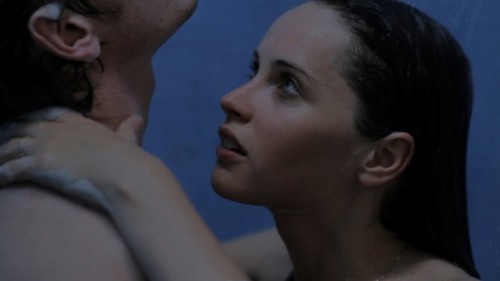
Anna and Jacob make plans for him to visit her, but they have ongoing lives that can’t be put on hold in between visits. Jacob is a carpenter with a growing furniture business; early in their relationship he gives Anna a lovingly made desk chair where she can write comfortably, the film’s title etched into the wood. In England, Anna pursues a job writing for a publication where she’ll have to plug away for a few years before she gets to where she wants to be. Phone calls never occur quite at convenient times for either of them, and they’re incurably out of sync with each other’s schedules.
One of us waits at the airport with flowers in hand, dressed up and well-groomed, eagerly scanning the faces of each haggard traveler coming off a long international flight. The other spends over an hour deplaning, lugging bags through customs and immigration, and then hastily trying to wash off the stench of travel in an airport bathroom before coming through the arrivals gate. In the span of a couple of weeks (all the time we could manage to get off work), we’d pack in visits with friends and family, sightseeing, fancy white tablecloth dinners, romantic mini-getaways, and lots and lots of serious talks about the future. More tears spilled in airports and on airplanes, and in cars driving away from them, than seems physically possible.
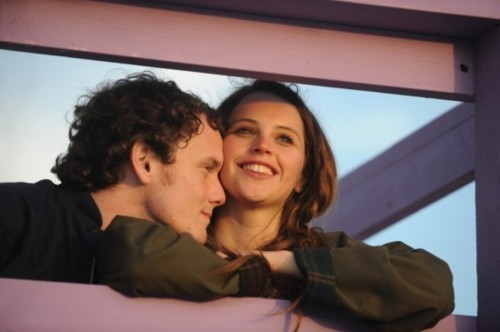
Anna’s parents can see how happy Jacob makes their daughter and are very supportive of their relationship, in whatever way they choose to pursue it. Of course, the suggestion of marriage comes up very early. Just like staying through the summer instead of leaving right after graduation, getting married seems like a very good idea.
“So, are you planning on moving to Australia?” “What would he do if he moved here?” “Wouldn’t it be easier if you just got married?” I can’t, I’m too young. I don’t want to get married for convenience. What about money; how would we make it work?
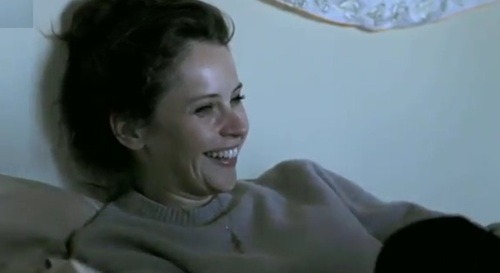
Jacob and Anna carry on with their lives. It’s so hard to miss each other, but they try their best to share in each other’s personal triumphs. Promotions, settling in to the fun activities of hanging out with their cultivated groups of friends, generally growing up. They begin to move on to new relationships, but they stay in each other’s thoughts, Anna’s chair and bracelet (engraved fittingly with “Patience”) remaining tokens of Jacob’s love that she can’t leave behind.
I remember being bitterly jealous of couples I saw holding hands at farmer’s markets or watching TV shows together over delivered pizza. We are so much better than they are, why don’t we get to be together, but they do? Maybe marriage is the answer… There is always value in thinking reasonably and thoroughly about major decisions like that.
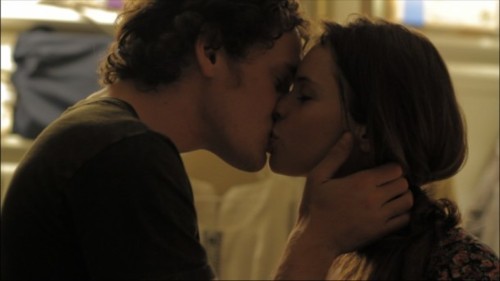
“Don’t think about it,” Anna tells Jacob when he voices concern about their future.
My long-distance relationship didn’t follow the same trajectory that Anna and Jacob’s did. The film peeks in on their lives, leaving them abruptly and ambiguously, but it’s easy for a romantic to infer that the struggles in the film paved the way for a happy future. I imagine that Like Crazy is to a long-distance relationship what Blue Valentine is to divorce - realistic to the point of being difficult to watch if you’ve lived through it. There are so many major threads that weave together a long-distance love: devotion, trust, emptiness, wist, heightened romanticism. Like Crazy captures all of these so well, but it especially reminded me of the willful ignorance of it all. The struggle to pretend that very real hurdles don’t exist because it’s just not fair for them to hold us back. The naive desire to believe that, should those hurdles be overcome, everything will carry on harmoniously.
I was twenty-three, riding in the passenger seat of his car on the way to the airport, heading back home after my last visit to Australia. I broke the silence with verbalized fantasies of all the things I couldn’t wait for us to do together when we were finally living together in the same city. At the airport I cried, as usual. Two years prior I’d made the same trip from Sydney, then only on the starting line of this long-distance marathon. That time, I’d sat against the window, embarrassed to be seen by flight attendants as I wept into the sleeve of my sweatshirt. Mercifully, a girl finally rushed down the aisle to be seated next to me. Her face was splotchy and she carried a bouquet of flowers as she left her Australian boyfriend behind to return home to South America. We cried together. I shared with her some of the Chupa Chups I’d packed for the flight. This time, I traveled alone.
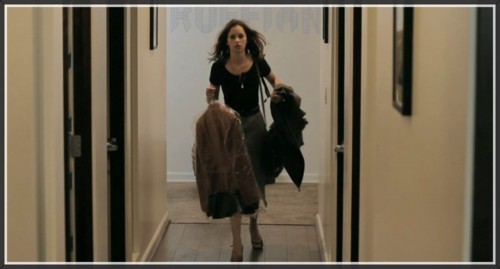
Katherine Spada is a Hollywood assistant and sometimes writer. When she’s not working, she trains in Muay Thai and Brazilian Jiu Jitsu. When the mood strikes, she contributes to MediaBlvd Magazine, and blogs at Kat Ex Machina.
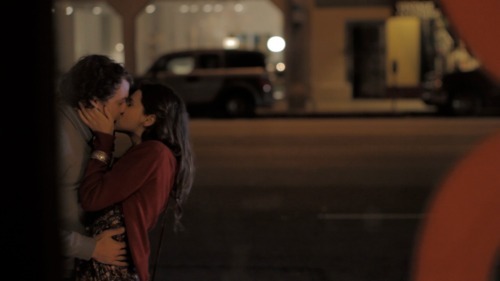



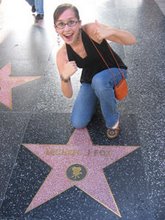
No comments:
Post a Comment